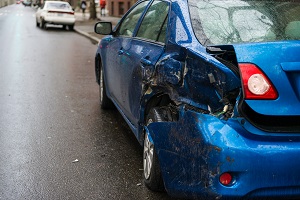An insurance claim is the process of notifying your insurance company that you have been in an accident or other covered incident. The claim starts the process of accessing your benefits so you can cover any damages or injuries you experience.
Different types of car insurance cover other kinds of incidents. Common coverages include the following:
- Comprehensive and collision insurance covers damage to your vehicle, including events outside your control, such as vandalism, impact with an animal, theft or a tree branch hitting your windshield.
- Liability insurance covers damage to an individual from an accident that was your fault. Liability insurance covers bodily injury, physical harm to another driver or passenger and property damage, such as vehicle or structural damage.
- Personal injury protection and medical payments coverage offer bodily injury reimbursement for the costs of harm to you or your passengers in an accident, regardless of who was at fault. This insurance may also cover lost wages if you miss work. Uninsured and underinsured motorist coverage covers accidents involving an at-fault, uninsured or underinsured driver.
How Does the Claim Process Begin? 
The claims process begins when you notify your insurance company that you’ve had an accident. Your claim starts the process of accessing your benefits so you can pay for damages or injuries.
To file a claim, you will need the accident details, including:
- Your insurance policy number.
- The names of everyone involved.
- The details of the accident.
- The other driver’s insurance information.
- A copy of the police report.
Once you submit your claim, your insurer will begin an investigation. They review vehicle damage and the cause of the accident. Once they have the information they need, they will either accept or deny your claim. If they accept your claim, they will issue you a check based on the type of insurance you have and the value of the damages.
You may need to pay a deductible if you have full coverage and are filing a claim to cover your damages after an accident. Your deductible is the agreed-on amount on your policy that you pay out-of-pocket before your insurer pays the remaining amount.
Can a Claim Be Denied?
Your claim will generally be approved if your insurance policy covers it. For example, collision and comprehensive coverage typically cover most things. However, liability insurance generally only covers property damage or bodily injury for the other driver if you’re found at fault.
The claims process can differ depending on the nature of your incident. For example, the claims process for an accident is different from that of a stolen car insurance claim. Your insurance company can help you understand the claims process for your specific car insurance policy.
Your claim could be denied based on the nature of your accident or your coverage policy. For example, your claim may be rejected if there is evidence you violated any laws during your accident. If your claim is denied, your insurance company won’t pay anything. You can ask why your claim was denied, and you can also file an appeal if you don’t think your insurance company has all the necessary information to make an accurate determination.
What Are the Types of Claims?
There are two ways you can make a claim: cashless or reimbursement. After an accident, if you get your vehicle repaired at a partner repair shop, your insurance claim is settled using a cashless method. You should ask your insurance company which repair shops are their partners. Knowing this information can help the claims process go more smoothly.
If you get your vehicle repaired at a garage that isn’t a partner with your insurer, you will have to pay them directly. After you do this, you can get your repair bills reimbursed by your insurer. A reimbursement claim may also be filed when you have a third-party claim against you. If you pay the third party directly, you may be able to get reimbursement from your insurer, depending on the terms and conditions mentioned in the policy.
It’s best to be prepared in the event of an accident and be as knowledgeable as possible about the claims process of your insurance company to help ensure a successful claim.